|
Photo credit: Soon Duk Woo On Sept. 29, 2022, South Korea’s highest court ordered the state to pay compensation to women who were forced or coerced into the military sex trade in so-called “camptowns” or Gijichon (기지촌) that developed around U.S. military bases. Recognizing the state’s responsibility for encouraging and justifying the military sex trade, the court ordered the state to pay between 3 million and 7 million won (approximately $2,100–$4,900) in compensation each to a total of 95 former Gijichon women.
The former Gijichon women sued the government for coordinating the sex trade for the U.S. military. They were kept locked into the camptown sex trade, resulting in irrevocable physical and psychological suffering. The government forced these women to register as U.S. military “comfort women” and submit routine STD testing results, even going so far as to mobilize public health workers and the police to forcibly quarantine those who refused to be tested. As their official documents indicate, from the 1950s to 1980s, both the South Korean and U.S. governments referred to these Gijichon women as “comfort women.” The euphemistic term “comfort women” was first used to refer to Japanese military sex slaves taken from many parts of Asia before and during WWII. However, unlike Japanese military sex slaves euphemistically referred to as “comfort women,” U.S. military “comfort women” did not garner much attention in South Korea. In the case of Japanese military “comfort women,” the survivors filed lawsuits beginning in 1992, a year after Hak-soon Kim publicly testified about her experience as a Japanese military sex slave. Although the perpetrators of both Japanese military “comfort women” and U.S. military “comfort women” were governments and men, Gijichon women didn’t sue for compensation until 2014. Both the U.S. and South Korea contributed to the existence of the U.S. military “comfort women” system. In its ruling, the South Korean Supreme Court stated, “The government’s formation and operation of the military base villages, and encouraging and justifying prostitution inside them, constitute a violation of the duty to honor human rights.” The court added that, “These actions correspond to a violation of human rights under the Framework Act on Settling Past Issues for Truth and Reconciliation (2005). Therefore, a request for the state to pay damages for those actions is not subject to the statute of limitations.” The court ordered the South Korean government to pay 7 million won to the women who were kept in “monkey houses” while paying the rest 3 million won. Though there were initially 122 women who filed suit in 2014, the number dwindled to 95 after 24 died of old age and two withdrew from the lawsuit. 72-year-old Suk-ja Kim, a natural-born Korean, said she finally feels that she is a legitimate South Korean citizen.
0 Comments
https://mailchi.mp/95d930e26b2d/august-and-september-newsletter?e=[UNIQID]
On Sept. 20, as a guest lecturer, Sung Sohn discussed preserving the history of the Japanese military sexual slavery system in the face of opposition at a University of San Francisco graduate seminar. Russ Lowe, ESJF co-founder who was actively involved in the San Francisco “comfort women” memorial installation, shared the background on selecting the memorial site. During the discussion, examples of a pan-Asian effort were mentioned and emphasized. Discussion participants’ insightful comments and questions made the seminar thoroughly engaging.
Second public comment session on the proposal to install the Peace statue in Peace Plaza Park9/19/2022 On Sept. 19, the Philadelphia Art Commission held the second public comment session at the special meeting on the proposal to install the Peace statue in the city’s Peace Plaza Park. The first public hearing was on Feb. 9 this year. Sung attended both hearings hosted by the Philadelphia Art Commission and spoke in support of the statue installation. The deliberation and vote on the proposal will be made on Oct. 12.
On Sept. 8, the UN Foundation co-hosted a talk with U.S. Ambassador to the UN Linda Thomas-Greenfield at the Fairmont Hotel in San Francisco, where the UN Charter was negotiated and signed on June 26, 1945. UN Foundation Senior Vice President Peter Yeo introduced the Ambassador, who spoke on “The Future of the United Nations.” Her speech was followed by an interview. She previewed U.S. priorities for the 77th UN General Assembly and discussed America’s role at the United Nations. Among the U.S. priorities she listed were defending and recommitting to the UN Charter as a leader in advancing human rights. She also talked about the significance of addressing global food security issues impacted by climate change, pandemic, and war. Representing ESJF, Sung was honored to be invited to the event.
Click here for a YouTube recording on Six Clear Principles for Responsible Behavior for UN Security Council Members spoken by U.S. Ambassador to the UN Linda Thomas-Greenfield |
CategoriesCategories |
Proudly powered by Weebly

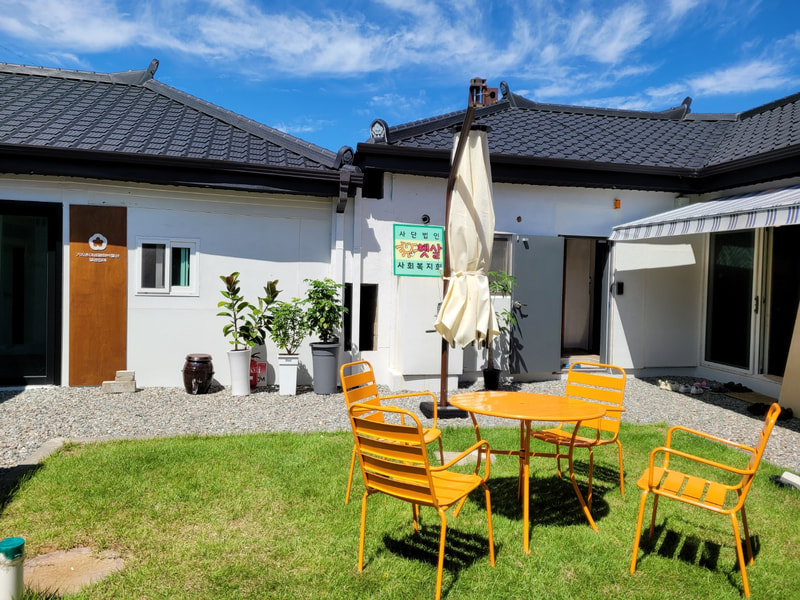
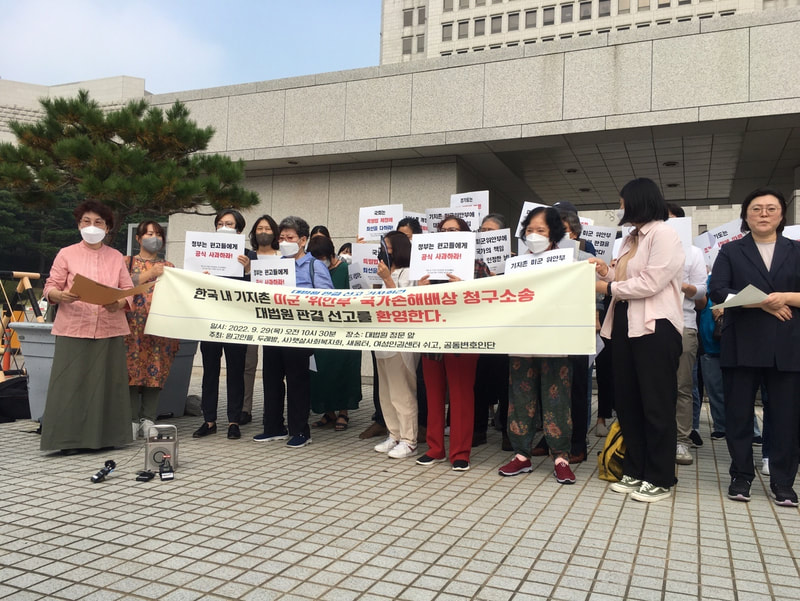
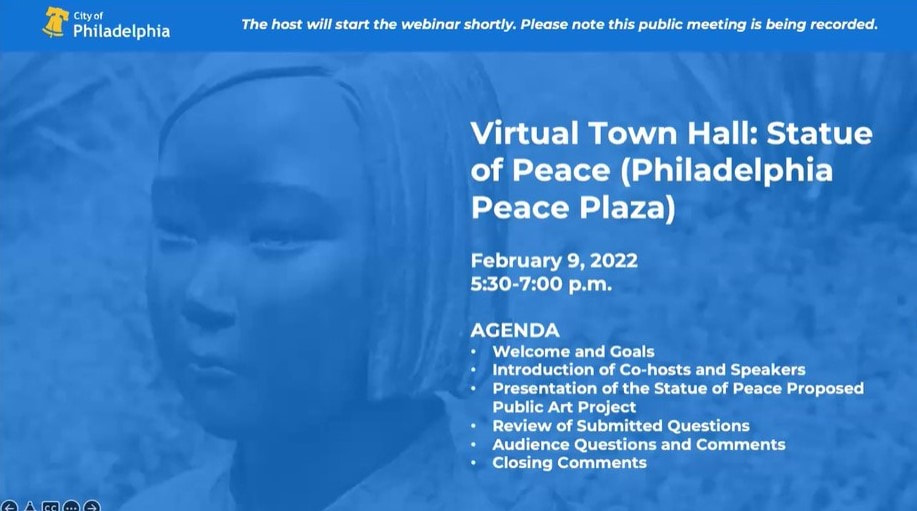
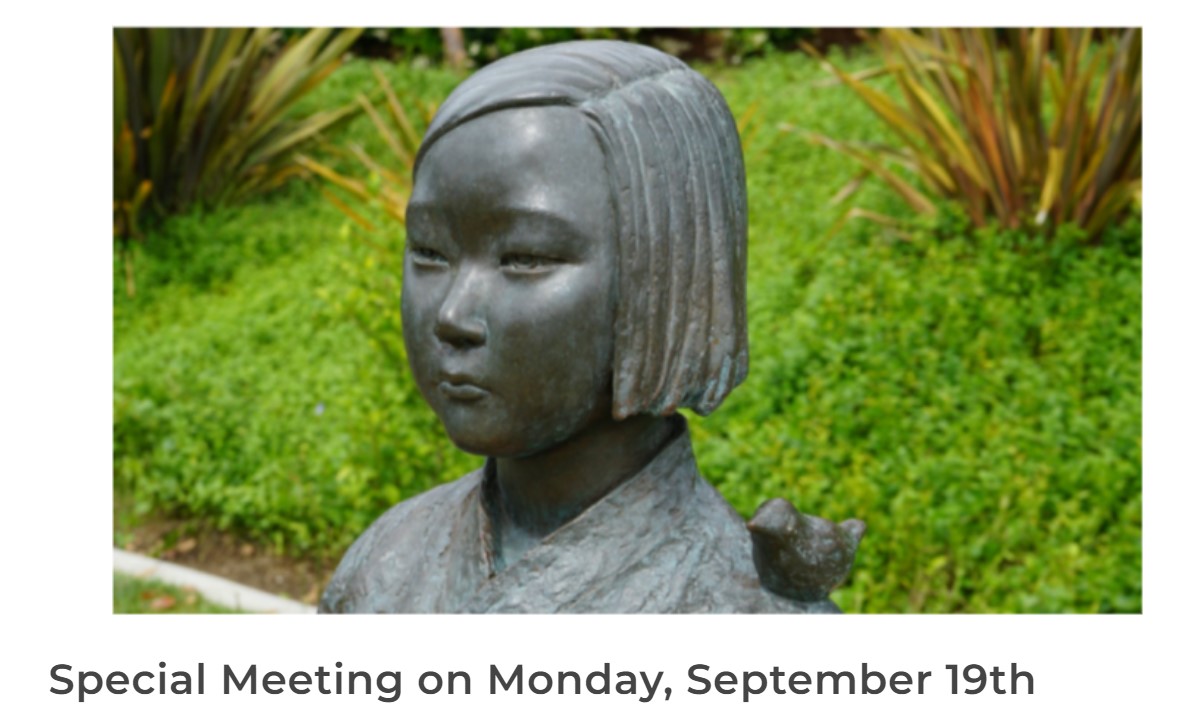
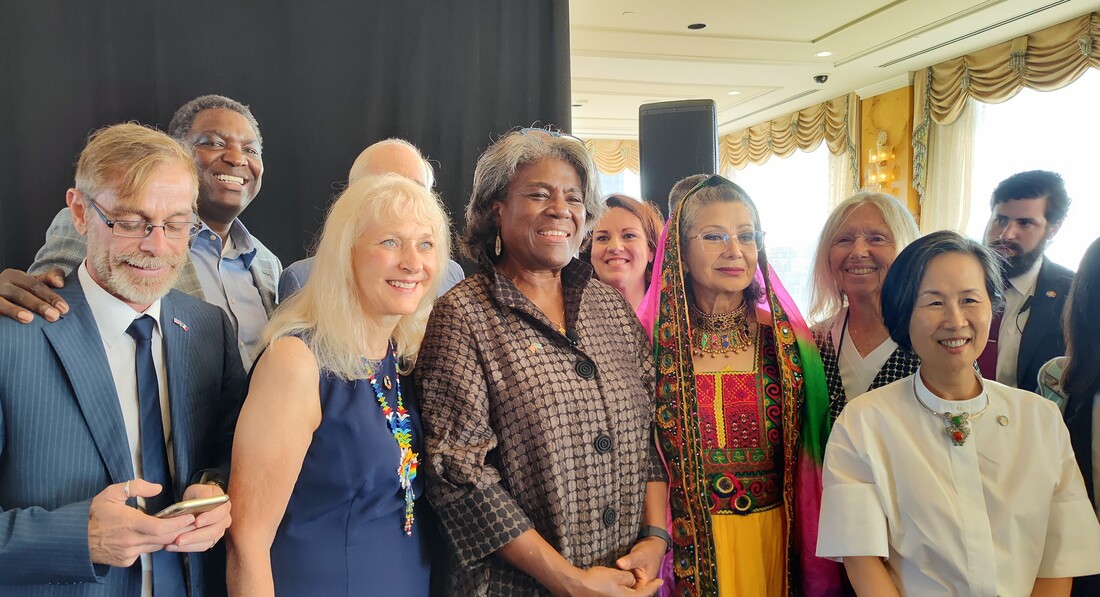
 RSS Feed
RSS Feed